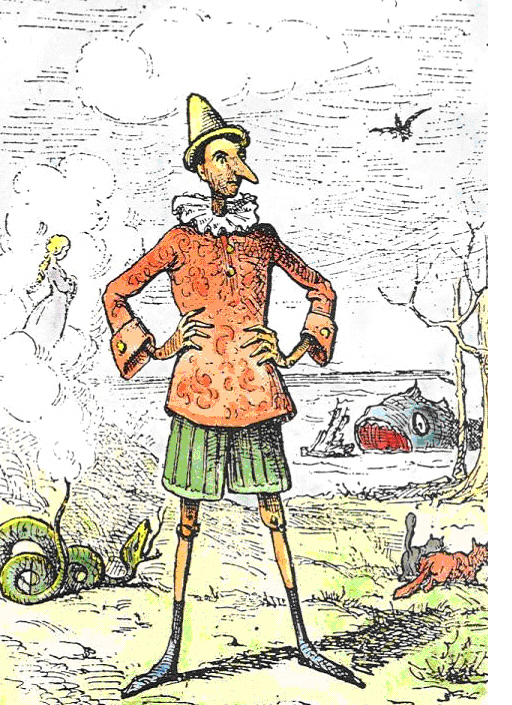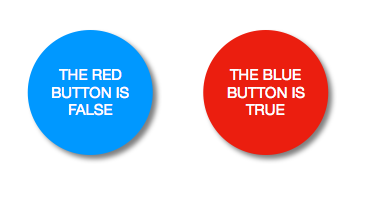Shortly after the neighbourhood mediation started, one of the parties turned to me her eyes flashed with anger: “Everything that he is telling is false, do not listen to him…”
The other party got het up: “Indeed, Mr. mediator, everything I have ever said was a lie…Do not listen to me…” Without even knowing this, the second neighbour just used something that is in theory described as liars’ or Epimenides’ paradox: His statement just could not have been true.
Liar’s Paradox
 Epimenides, a Cretan semi-mythical philosopher, is known as an original author of the liar’s paradox, ie. a sentence that cannot be true for logical reasons. In one of his unpreserved works, he wrote that “all the Cretans are liars“. For Epimenides himself was a Cretan, his declaration would have applied to him as well.
Epimenides, a Cretan semi-mythical philosopher, is known as an original author of the liar’s paradox, ie. a sentence that cannot be true for logical reasons. In one of his unpreserved works, he wrote that “all the Cretans are liars“. For Epimenides himself was a Cretan, his declaration would have applied to him as well.
So either, he was telling the truth, but this would mean that at least one Cretan (ie. Epimenides himself) was not lying and thus, his statement was false. Or, he was lying, then his sentence would need to be read as all the Cretans are true-tellers which would be negated by his original lie.
As all logical exercises, also this one can be bit messy, so I recommend you to use more up-to-date versions of liar’s paradox, such as: “This statement is false”, “I am now lying” or “all mediators are always liars” providing that you consider yourself as a mediator.
What is also paradoxical, Epimenides intended his statement rather as a criticism of his fellow citizens and not as a logical wordplay. Anyway, his famous proverb started to live its own life as it was later adapted by Paul the Apostle and Bertrand Russell and even ultimately picked up by popular culture. For instance, in the original series of the Sci-Fi Star Trek Captain Kirk and Harry Mudd used the liar paradox to confuse and ultimately disable an android holding them captive (you can see the classical scene here).
Black and White World
Though of rather theoretical nature, the liar paradox shows us that common beliefs about truth and falsity actually might lead to a contradiction and complications. In other words, nothing is black and white. That goes especially for mediation.
A lie is an inseparable part of dispute resolution milieu. As such, it may be a reason for which the conflict has arisen or it might be a weapon used by parties when arguing. Although from its definition, its appearance is more common in adjudicative dispute resolution such as arbitration or litigation, there are a few of mediators who could declare that they had not met with deception in their practice. No matter, whether a party lied to the other party, to the mediator or to both of them.
When dealing with lies in mediation, the thin line between it and other deception has to be drawn in the first place. A lie might be defined as a statement used intentionally for the purpose of deception. Paul Ekman, however, suggests two main conditions to distinguish between a lie and other deceptions: The intent and unconsciousness of the target.
The first condition incorporates the deliberate choice to lie as it is a conscious and considered decision. This would exclude all pathological liars as they are forced to lie by irresistible temptation. The second condition is excluding all magicians, fortune-tellers and even actors in theatre. When Hamlets is killing Claudius on stage, no one in the theatre believes actual homicide is happening and yet, none is calling the actors liars…
Quite surprisingly, the truthfulness of information that is being passed on is not one of those criterions. In the end of the day, a liar may be saying the truth, yet his intent was different.
Desirable Lie and Undesirable Truth
From a cultural point of view, there is a certain set of lies that are not considered as negative and against ethical rules of most world’s communities. One of them being a so-called polite lie which is the situation when talking the truth is actually crossing the cultural rules more than lying. Such is the situation when an ill person is asking about her appearance. Though looking awful, the majority of us would tempt to say she looked fine in order to lift up her spirit.
To the similar box, the butler lie belongs which might be described as a small lie usually sent electronically, which is used to terminate conversations or to save face: “I need to go, the meeting is about to start.” Acceptability of this lie is, however, heavily dependent on culture.
An interesting survey was run at one of the Czech universities when approximately one hundred respondents were asked whether they would consider the following sentence told by a mother to a child as a lie: “On Christmas, the gifts are brought by Christ-child.” Christ-child (in German Christkind in Czech Ježíšek, literally little Jesus) is a Christmas gift-bringer in Czech Republic, Austria, Switzerland, in the parts of Germany, Slovenia, Croatia… In other words, this is a sentence that is regularly repeated in the vast majority of families in Central Europe as it is regularly repeated that Santa Clause is bringing gifts in Northern America.
According to the above-described criteria, this sentence is a lie. A mother has an intention not to tell truth and she has a choice not to do it. The child does not know that she is not telling the truth. However, for the absolute majority of people coming from this part of the world, it is very difficult to say that mother is a liar. Many of the respondents tried to provide an excuse for their choice, some of them tried to relativise the lie (soft lie, necessary lie, even a good lie) and some of them would not consider it as a lie at all.
The majority of mediations are, however, not about Christmas and gift-bringing. Consequently, the reception of lies within it is of rather harsher and less accommodative nature. As a mediator, the first issue that strikes me when it comes to deception in dispute resolution is the trust. There are little things that harm it more than lying. As also aptly pointed out by John Stuart Mill: “Dishonesty limits the parties’ capacity to resolve their dispute for it helps the sense of unfairness to preserve.”
It is mainly this, what makes me feel that a good mediator should be good in lie detection and even better in responding correctly to those situations.
[To be continued]
________________________
To make sure you do not miss out on regular updates from the Kluwer Mediation Blog, please subscribe here.



